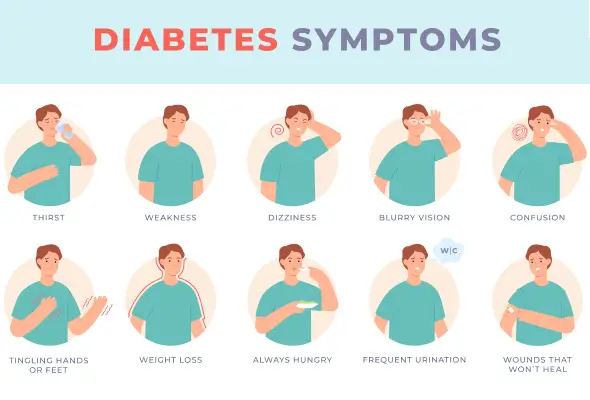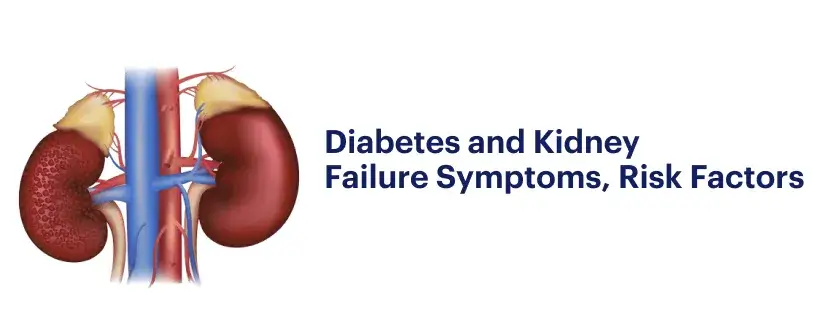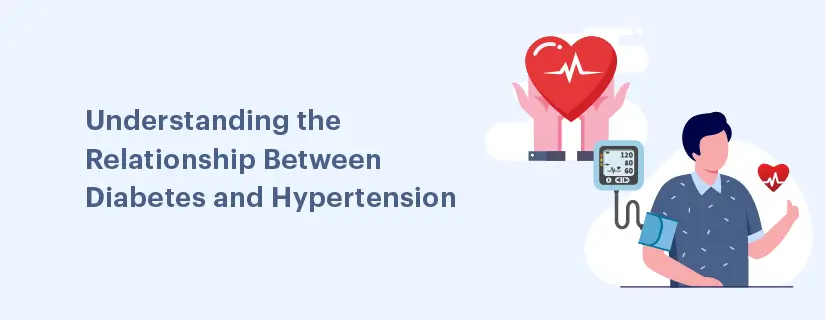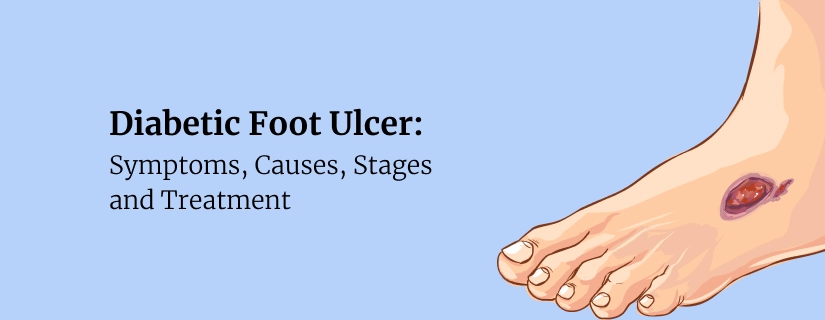-
Doctors
-
Specialities & Treatments
Centre of Excellence
Specialties
Treatments and Procedures
Hospitals & Directions HyderabadCARE Hospitals, Banjara Hills CARE Outpatient Centre, Banjara Hills CARE Hospitals, HITEC City CARE Hospitals, Nampally Gurunanak CARE Hospitals, Musheerabad CARE Hospitals Outpatient Centre, HITEC City CARE Hospitals, Malakpet
HyderabadCARE Hospitals, Banjara Hills CARE Outpatient Centre, Banjara Hills CARE Hospitals, HITEC City CARE Hospitals, Nampally Gurunanak CARE Hospitals, Musheerabad CARE Hospitals Outpatient Centre, HITEC City CARE Hospitals, Malakpet Raipur
Raipur
 Bhubaneswar
Bhubaneswar Visakhapatnam
Visakhapatnam
 Nagpur
Nagpur
 Indore
Indore
 Chh. Sambhajinagar
Chh. SambhajinagarClinics & Medical Centers
Book an AppointmentContact Us
Online Lab Reports
Book an Appointment
Consult Super-Specialist Doctors at CARE Hospitals
What are the Symptoms of Uncontrolled Diabetes?
Updated on 30 November 2023

Diabetes is a chronic disease that affects millions of individuals throughout the world. It is defined by the body's inability to control blood sugar levels, which results in either inadequate insulin production or inefficient insulin utilization by the body. Diabetes, if not adequately controlled, can result in a wide range of medical problems affecting many organs and systems in the body.
Diabetes that is not under control is a serious concern since it raises the chance of complications and can have severe effects on a person's health and well-being.

Why is Some Diabetes Uncontrolled?
Numerous factors can lead to uncontrolled diabetes. People may, at times, be unaware that they have diabetes. People without symptoms or warning indications of Type-2 diabetes may be unaware of the disease until their blood sugar spikes uncontrollably.
To keep blood sugar levels steady and within a safe range, diabetes must be checked and managed on a regular basis. Effective diabetes management primarily involves controlling blood sugar levels through medication, lifestyle modifications, and regular monitoring. However, there are various causes of uncontrolled diabetes:
- Improper Administration of Medications - Managing diabetes often requires the use of medications, such as insulin or oral medications. Non-adherence to prescribed medications can lead to fluctuations in blood sugar levels.
- Insufficient Monitoring - Regular blood sugar monitoring is crucial for adjusting treatment plans and lifestyle modifications. Failing to monitor blood sugar levels effectively can lead to uncontrolled diabetes.
- Lack of Awareness - Many people are unaware of the seriousness of diabetes or the importance of maintaining healthy blood sugar levels. This lack of understanding can lead to neglect in managing the condition.
- Inadequate Self-Care - Some diabetics may not adhere to recommended dietary guidelines, exercise routines, or regular blood sugar monitoring. All in all, poor self-care can result in uncontrolled diabetes.
- Dietary Choices - Poor dietary choices, such as consumption of excessive carbohydrates and sugars, can cause blood sugar spikes. A diet lacking in nutrients and high in empty calories can worsen uncontrolled diabetes.
- Sedentary Lifestyle - Lack of physical activity can hinder the body's ability to use insulin efficiently. Regular exercise can help regulate blood sugar levels, and its absence can contribute to uncontrolled diabetes.
- Stress and Mental Health - Stress and mental health issues can influence blood sugar levels. Chronic stress can lead to hormonal imbalances that affect insulin sensitivity, resulting in uncontrolled diabetes.

Uncontrolled Diabetes Symptoms
Uncontrolled diabetes can manifest through various symptoms, which can be mild or severe, depending on the level of glycemic control. Common symptoms of long-term uncontrolled diabetes include:
- Increased Thirst - Extreme thirst, or polydipsia, is a condition that sometimes affects people with diabetes. This is typical in uncontrolled Type-1 diabetes and can also happen in really high blood sugar cases in Type-2. Elevated blood glucose levels can cause the body to become dehydrated, thirsty, and less able to absorb fluids.
- Frequent Urination - Elevated blood sugar levels can lead to urination as the body attempts to remove excess sugar from the bloodstream through urine. Individuals typically excrete 800 mL to 2000 mL of urine per day. A diabetic who is not receiving treatment may urinate up to 15 L per day.
- Frequent Infections - Elevated blood sugar levels weaken the immune system, making individuals with uncontrolled diabetes more susceptible to infections, particularly in the urinary tract, skin, and respiratory system.
- Ketoacidosis - In severe cases of uncontrolled diabetes, a condition known as diabetic ketoacidosis can occur. It is characterised by high levels of ketones in the blood, leading to symptoms like nausea, vomiting, abdominal pain, and rapid breathing.
- Kidney Problems - Elevated glucose levels have the potential to cause long-term harm to blood vessels, which includes the kidneys. Kidney disease may develop due to the kidneys working harder to filter blood. When kidney illness is first diagnosed, it often shows little or no symptoms, and there could be harm done before symptoms show up.
- Increased appetite without gaining weight - Even if a diabetic has elevated blood glucose levels, their cells are unable to utilise this glucose for energy. This occurs due to the body's inability to properly utilise or manufacture insulin. It may result in Polyphagia, a condition when the body misfires on hunger signals in an attempt to get fuel. Hunger might linger after eating because the body keeps requesting food. Even though Type-2 diabetes and obesity are related, diabetics who struggle to control their condition may not gain weight even when they overeat.
- Weight Changes - Uncontrolled diabetes can cause unintended weight loss or weight gain, depending on whether the body is using glucose effectively or not.
- Blurred Vision - Elevated blood glucose levels can impact the eyes, leading to impaired vision or trouble concentrating.
- Heart-related symptoms - Hypertension is one of the common cardiovascular symptoms in people with diabetes. In addition, they could be obese and have high cholesterol, both of which are heart disease risk factors. Inadequate blood flow may also be a factor in delayed wound healing and issues with the extremities, including the feet. Important warning signals include elevated blood pressure, chest discomfort, or irregular heart rhythms. Regardless of whether they are brought on by diabetes or another condition, individuals shouldn't disregard them and visit the doctor without any delay.
- Neuropathy - Uncontrolled diabetes can damage nerves, causing tingling, numbness, or pain in the extremities, known as diabetic neuropathy.
How Uncontrolled Diabetes Affects the Body?
Uncontrolled diabetes can have profound effects on various systems within the body. Here are some ways in which it affects different organs and systems:
- Heart Disease - The risk of heart disease and stroke is significantly increased by uncontrolled diabetes. High blood sugar levels can damage blood vessels and lead to Atherosclerosis, increasing the likelihood of heart attacks and strokes.
- Kidney Disease - Uncontrolled diabetes can lead to diabetic nephropathy, which damages the kidneys. This condition can progress to kidney failure, requiring dialysis or transplantation.
- Eye Complications - Diabetic retinopathy is a common complication of uncontrolled diabetes that can lead to vision loss and blindness. High blood sugar levels damage the blood vessels in the retina, causing leakage and scarring.
- Nerve Complications - Neuropathy, as mentioned earlier, is a common consequence of uncontrolled diabetes. It can result in pain, numbness, or loss of sensation in the extremities, affecting the quality of life.
- Skin Conditions - Uncontrolled diabetes can cause skin problems, including bacterial and fungal infections, and slow wound healing.
- Reproductive System - Both men and women with uncontrolled diabetes may experience sexual dysfunction. In women, diabetes can lead to complications during pregnancy, including gestational diabetes.
Conclusion
Uncontrolled diabetes is a serious health condition with potentially devastating consequences for those affected. It can lead to a range of physical, emotional, and cognitive complications, affecting nearly every system within the body. The key to preventing uncontrolled diabetes and its associated complications lies in early diagnosis of signs of uncontrolled diabetes, regular monitoring, appropriate uncontrolled diabetes treatment, and diligent self-care.
To Book an Appointment, call:
ENQUIRY FORM
SELECT CATEGORIES
-
Neurosciences (16)
-
Neurology (37)
-
Neurosurgery (14)
-
Orthopaedics (48)
-
Oncology (33)
-
Obstetrics and gynecology (52)
-
Pulmonology (23)
-
Urology (20)
-
Nephrology (13)
-
Psychiatry (7)
-
Dietetics and Nutrition (111)
-
General Medicine (63)
-
Cardiac Sciences (32)
-
Vascular & Endovascular Surgery and Interventional Radiology (15)
-
Gastroenterology (46)
-
Endocrinology (23)
-
Plastic Surgery (10)
-
Critical Care Medicine (5)
-
COVID-19 (16)
-
Dermatology (16)
-
Emergency Care (1)
-
Ophthalmology (4)
-
Pediatrics (14)
-
Laparoscopic and Bariatric Surgery (8)
-
ENT (15)
-
Kidney Transplant (1)
-
Liver Transplantation and Hepatobiliary Surgery (5)
-
General Surgery (3)
-
Internal Medicine (5)
-
Medicine Information
Difference between Type 1 and Type 2 Diabetes
How to Prevent Diabetic Foot Problems?
YOU MAY ALSO LIKE
RECENT BLOGS
-

Preterm Birth (Premature Birth): Symptoms, Causes, Treatment and Prevention
13 May 2025
Read More
-

Rotablation Angioplasty: Benefits, Treatments, And Recovery Time
9 May 2025
Read More
-

What Is The Difference Between IUI and IVF?
9 May 2025
Read More
-

Venous Malformations: Causes, Symptoms, and Treatment
30 April 2025
Read More
-

Varicose Vein Foam Sclerotherapy: Treatment, Benefits, and Procedure
30 April 2025
Read More
-

Radiofrequency (RF) Ablation Treatment for Varicose Veins: Know More
30 April 2025
Read More
-

Varicose Vein Sclerotherapy: Treatment, Benefits, and Procedure
30 April 2025
Read More
-

Varicose Vein Endovenous Laser Ablation: Procedure, Benefits, Risks
30 April 2025
Read More
Have a Question?
If you cannot find answers to your queries, please fill out the enquiry form or call the number below. We will contact you shortly.






















